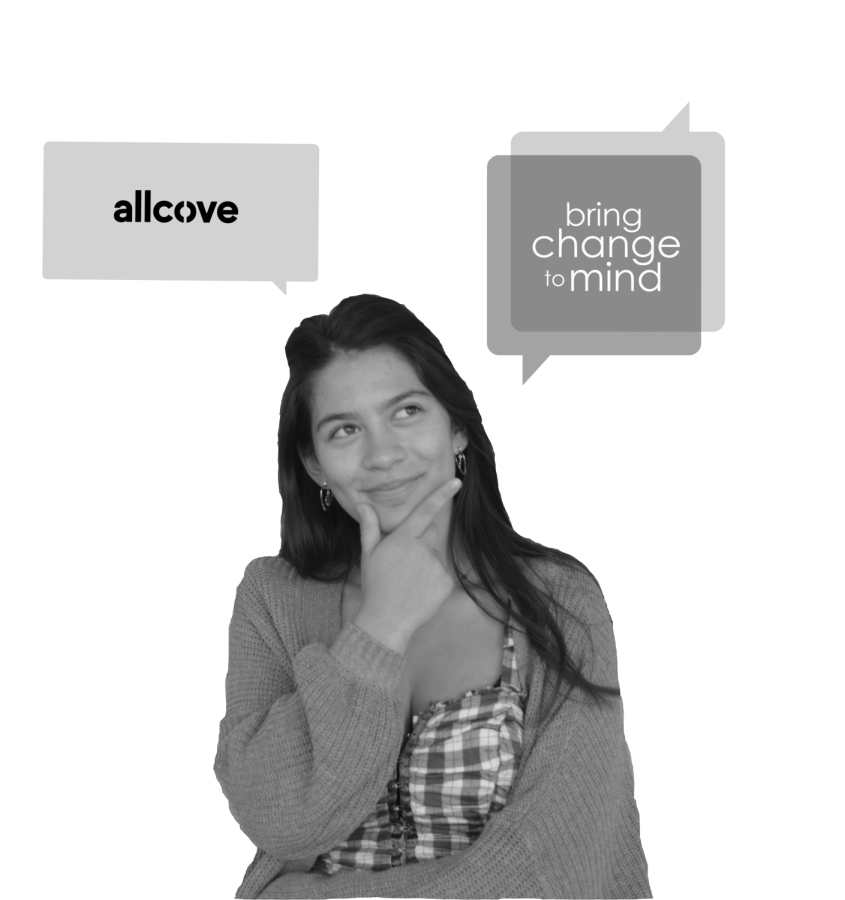Senior Phebe Cox advocates for mental health reform through work in organizations
Senior Phebe Cox is usually reserved in tone, but when she begins talking about her frustration with not being able to do anything to change the perception of mental health at Gunn, her voice picks up urgency and pace. “I felt like I saw so much stuff going down at our school and I felt so out of control,” she said. “I needed to feel like I was doing something or I was working for something that would change lives.”
For the past two years, Cox has been turning her frustration into advocacy through the Allcove and Bring Change to Mind organizations, both causes furthering mental health awareness and support in the community.
Allcove, a Stanford initiative headed by Cox’s youth advisory group, works to provide mental health resources for teens by establishing a network of community centers across the United States (U.S.). “There’s a program called Headspace in Australia, and it provides free mental health care for youth ages 12 to 25,” she said. “Stanford decided that they wanted to start one in the U.S. I’ve gotten to be a part of the process of starting that. So we have Allcove now.”
Indeed, Cox has been a part of Allcove since the organization was founded. “Initially it was very baseline—we had to figure out a name and get all the legal logistics out of the way,” she said.
Since then, the organization has come a long way. “A year ago, one of my friends from the Youth Advisory Group did a testimony and we all wrote testimonies to get $19 million from Santa Clara County,” Cox said. “Two months ago, I got to go to the state capital and give a testimony on how I’ve dealt with mental health and why it’s important that the government recognizes the fact that we need funding for mental and physical health care for youth.”
Cox also serves as the president of Gunn’s Bring Change to Mind club, which works to destigmatize mental health among friends. “If you influence your circle you can actually change a lot of people’s lives,” she said. “That’s why I wanted to join Bring Change to Mind and be president.”
During her time in the club, Cox has been exposed to a multitude of different experiences. “[Bring Change to Mind] is a nationwide program, so there’s a lot of big events they have,” she said. “Last year, there was a Bring Change to Mind conference at Twitter headquarters. Everyone just talked about things we did, [which] boosted morale within the community.”
And while Cox has certainly been at the forefront of mental health advocacy, she herself has struggled with similar issues in the past. “I got diagnosed with depression sophomore year, which was a very big struggle for me,” she said. “Especially coming from a background with living with psychiatrist [parents], it was very much like, what makes my struggle worse than other people’s and why do I get to call myself depressed?”
With the help of her therapist, Cox shifted her mindset. “It’s been easier since I got into therapy and [I’m] being more open about it,” she said. “Then I started wanting to change the system—I saw a lot of problems in the way mental health is treated.”
As for her advice to students struggling with their mental health, Cox keeps it simple. “You’re not crazy, you’re not stupid and you’re not exaggerating what you’re feeling,” she said. “What you’re feeling is completely valid. And you should reach out for help. Everyday, I might struggle, but things will get better in the end.”
Your donation will support the student journalists of Henry M. Gunn High School. Your contribution will allow us to purchase equipment and cover our annual website hosting costs.


